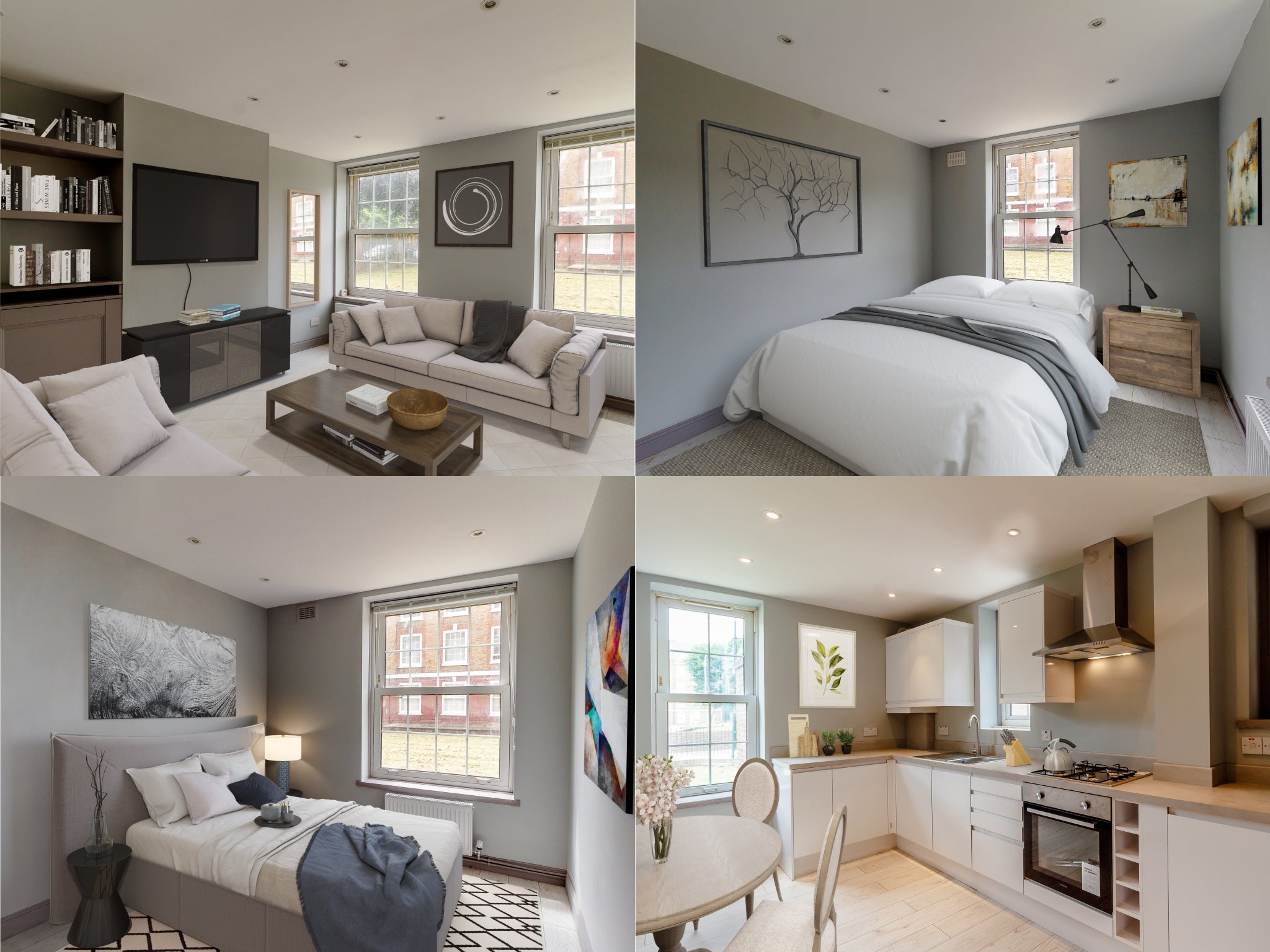‘You’ve got to be in it to win it’: What happens after you win a £500,000 property on a raffle ticket?
For most people a house is one of the biggest expenditures of your lifetime. But what happens if you win a home on a £2 raffle ticket? Sabrina Barr asks a 28-year-old who did exactly that


Your support helps us to tell the story
From reproductive rights to climate change to Big Tech, The Independent is on the ground when the story is developing. Whether it's investigating the financials of Elon Musk's pro-Trump PAC or producing our latest documentary, 'The A Word', which shines a light on the American women fighting for reproductive rights, we know how important it is to parse out the facts from the messaging.
At such a critical moment in US history, we need reporters on the ground. Your donation allows us to keep sending journalists to speak to both sides of the story.
The Independent is trusted by Americans across the entire political spectrum. And unlike many other quality news outlets, we choose not to lock Americans out of our reporting and analysis with paywalls. We believe quality journalism should be available to everyone, paid for by those who can afford it.
Your support makes all the difference.Niomi from Bournemouth first came across Raffle House about 18 months ago. Founded in 2017, the company gets customers to buy £2 raffle tickets for the chance to win a property, and was featured in a magazine subscribed to by Niomi’s boss at her Saturday job. The 28-year-old’s interest was piqued, so she decided to try her luck and started buying tickets.
Purchasing eight tickets over the course of a year, Niomi had only vaguely entertained the idea of winning. “My boss and I had a chat about what we’d do if you won,” the insurance consultant tells The Independent. Then, at the start of August, she got a text message from Benno Spencer, CEO and founder of the raffle brand, saying he had some “exciting news”.
“I sat at my desk for 10 minutes staring at my phone trying to work out whether it was real,” she recalls. The last time Niomi had bought a ticket was before lockdown, in March, and honestly, she says, she had forgotten all about it. Still skeptical about the communication, she logged into the Raffle House website and saw that this was the day the winner was due to be announced.
Niomi, who currently lives in rented accommodation, had just bagged a two-bedroom flat in London, worth £500,000, all for the cost of eight raffle tickets. No stamp duty to pay, no legal fees, it was all sorted.
While many may aspire to one day buy a home, becoming a homeowner is – for many people – a dream that is several years, if not decades, in the making. During the 2000s, property prices in the UK more than doubled in cash terms and, after adjusting for the rising cost of living, prices rose by 67 per cent, despite one of the largest financial crashes in modern history. This, combined with stagnant wage growth, has meant getting on the ladder is harder than ever.
According to market and consumer data company Statista, between 2018 and 2019, the average age of a first-time home buyer in England was 32.1, with the average age increasing to 36.7 for property hunters in London. It is well known that the bank of mum and dad is a big factor: in 2019 parents were predicted to hand out £6.3bn worth of loans to their children for first time buyers. In April 2019, a study of 2,000 UK adults aged between 23 to 38, concluded that one in four millennials had given up on the idea of ever owning their own property one day.
Gathering enough money for a deposit was almost something that was never going to happen
So schemes like Raffle House – there are thousands of individual companies offering such draws on Facebook and Instagram – which combine the power of social media advertising with the chance to win a home for the cost of pocket change, seem like the ultimate antidote to this millennial problem. But are they too good to be true?
People can enter the Raffle House prize competitions either through the free entry postal route or by buying a ticket for £2, 2.5 per cent of which is donated towards charities Housing for Women, which helps women and children in need of refuge and accommodation, and Centrepoint, which supports homeless young people.
But it hasn’t been without its problems. In October 2019, the Advertising Standards Authority (ASA) upheld two complaints made against Raffle House. The first complaint was that despite advertising a £650,000 property as a prize, the winner of the competition was instead given a £173,012.93 cash prize, as the company explained in its terms and conditions that winners would be awarded a cash prize “if the ticket threshold could not be reached in order to offer the property”.
The second complaint pointed out that a previous winner featured on a Facebook post for a £500,000 property was awarded a cash prize of less value than the advertised flat, although the post “misleadingly implied that they had won a house of similar value to £500,000”.
The ASA concluded: “We told Raffle House Ltd to ensure in future that they awarded the prizes as described in their marketing communications or reasonable equivalents, and that their future advertising did not mislead by exaggerating the value of a prize that had been previously awarded.”
On the Raffle House website, the company explains that in order to award to announce a winner for a property, a certain number of tickets must be sold. The threshold for the current property being advertised, which is worth £750,000, is 650,000 tickets, which would raise £1.3m in total. “We cannot continue to operate if we don't have the capital to do so,” explains Benno Spencer, CEO and founder of the company.
If the threshold is not met, then Raffle House either extends the deadline for the competition or presents a winner with a cash prize, which is “set at 90 per cent of sales net costs”.
The things I have been working so hard towards achieving in life have basically been done for me
Despite being called Raffle House, legally the company operates as a prize competition, not a raffle or lottery. The UK Gambling Commission says lotteries and raffles cannot be conducted for the sole purpose of “commercial gain or profit”, only good causes. Raffle House states on its website that it follows the regulations laid out by the gambling commission for prize competitions, adding that when the winner is drawn, the results are overseen by a third party.
Despite these issues, Niomi's experience was a positive one. “I almost now don’t have any financial worries”, she says. And has her life changed much since winning her flat? Day to day her life is very similar – she and her partner are still living in their rented property in Bournemouth, while her sister, who is in London, is going to move into the flat for a while.But the feeling of owning a property outright is “amazing”, Niomi states, especially given the fact that “not very many people can say that in this day and age”.
Her plan was always to get together a deposit, but she had been struggling. “The thing with that is, as much as you try really hard to save, there’s always something that you need to spend your money on, like a new car or replacing it if something goes wrong. It eats the money you’ve saved for the deposit. It was almost something that was never going to happen,” she says.
Without the competition, she doesn’t ever think she would have been able to buy. “I don’t think it’s really sunk in now. It’s all a bit surreal,” she says.“I change my mind really on a weekly basis as to what I think is the right thing to do with it,” she admits. “I could give you an answer now and then next week I will have changed my mind.”
“At this minute in time, I’ve still got rent and bills to pay, whereas going forwards I’m not going to have to worry about things like a mortgage. So it takes a huge weight off my mind, a huge pressure, because the things I have been working so hard towards achieving in life have basically been done for me,” she states.
For future raffle buyers, Niomi says “you’ve got to be in it to win it” and that you never envisage yourself walking away with such a prize. A lottery has long been a way of allowing people to dream of a better future, a gamble that could pay off. The Raffle House scheme is a particularly modern iteration – allowing people with no chance of a foot on the property ladder to get a mortgage-free roof over their head. It could be worth a shot.


Join our commenting forum
Join thought-provoking conversations, follow other Independent readers and see their replies
Comments